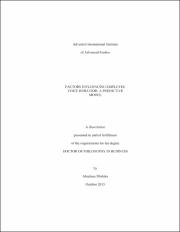| dc.description.abstract | Organizations need employees’ participation through voice behavior in terms of
sharing information, opinions, and generating valuable ideas in their workplaces. This
constructive voice behavior increases organizational effectiveness in the workplace.
Thus, the purpose of this study is to develop a predictive model on employee voice
behavior from the antecedents of voice (empowering leadership, organizational learning
capability, relationship with the supervisor, job satisfaction, organizational trust,
organizational identification, and communication) on selected private higher learning
educational institutions (PHLEI) in the Philippines.
A cross sectional design was used and the participants were chosen using
convenience sampling method. The data was collected from 7 PHLEI in Cavite region.
Out of 650 distributed questionnaires, only 440 were returned. Descriptive statistics,
t-test, one-way ANOVA, Pearson’s correlation, and path analysis were used to answer
the research questions of the study.
Using Pearson’s correlation, this study found out that there is a strong positive
correlation between the independent variables (empowering leadership, organizational
learning capability, relationship with the supervisor, job satisfaction, organizational trust,
organizational identification, and communication) and the dependent variable (voice
behavior) at p = 0.01. Using descriptive statistics, the study revealed that gender has no
significant difference on all the variables. On the contrary, there are significant
differences on job satisfaction among married and unmarried participants indicating that
married persons are more satisfied in their jobs. In addition, age and educational level
have shown significant differences on all independent variables but not on voice
behavior. Similarly, different layers of managers have understood voice behavior
differently as their managerial hierarchy grows. Furthermore, there are significant
differences on all the variables in relation to years of service.
This study found out that all the independent variables explained 33% of the
variance in the model while empowering leadership came out as the best predictive
variable of the model. Hence, this study has achieved its purpose in developing a
predictive model on employees’ voice behavior for the PHLEI in the Philippines. The
model is expected to initiate employees’ participation through sharing of constructive
information, ideas, suggestions, opinions, skills, and experiences for the organizational
growth. Practical implications for practitioners and recommendations for further future
researches are provided in the field of the study. | en_US |

